

Extolled widely as a paragon figure known as “The Father of Faith” or “The Father of Many Nations,” Abraham, a biblical luminary, is the foundational patriarch of the Christian faith. His staunch trust and veneration of God, his extraordinary journey from humble beginnings to exemplifying greatness, and his remarkable embodiment of righteousness have cemented him as an epitome of integrity and an enduring inspiration for generations.
Genealogically, he is an offspring of the ninth generation from Noah, born to the polytheist household of Terah. But against his ancestry, Abraham worshipped Elohim—The True God. The Bible describes him as an elder statesman in his household, living beyond a hundred years, with a dignified demeanour that commands respect and possessing vast fields of livestock and gold (Genesis 13.2). In spite of his high station and affluence, Abraham’s heart exalted God above all. Alongside his wife, Sarai and his nephew, Lot, he lived in Ur of the Chaldeans, a prosperous city in ancient Mesopotamia.
He was formerly called Abram; a Hebrew male name which translates to “exalted father” or “father of nations.” (Gen 17.5).
THE CALL OF ABRAHAM
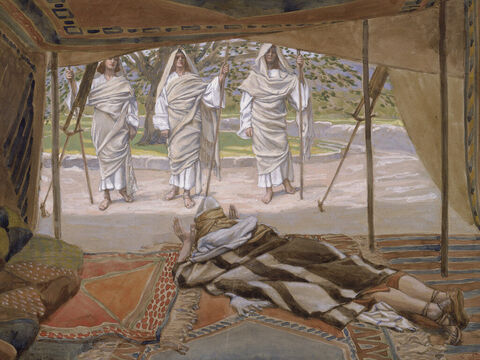
https://www.freebibleimages.org/illustrations/jtjm-abraham2/
Following his father’s death, the Lord called Abraham and instructed him to leave his homeland for an unknown land which he would show him. With a promissory note to bless and prosper him, Abraham yielded to the Lord’s instruction, journeying with no given road map, an unknown destination and a non-radical defying confidence in God.
The LORD had said to Abram, “Leave your country, your people and your father’s household and go to the land I will show you. I will make you into a great nation and I will bless you; I will make your name great, and you will be a blessing.”
Genesis 12.1-2.
In this critical moment of surrender, Abraham exemplified the first pillar of faith: Obedience, walking away from everything familiar in fulfillment of God’s will. This pivotal turning point marked the beginning of his life-transforming odyssey with God and set him on trajectory towards a divinely-promised destiny in Canaan.
THE PROMISED COVENANT
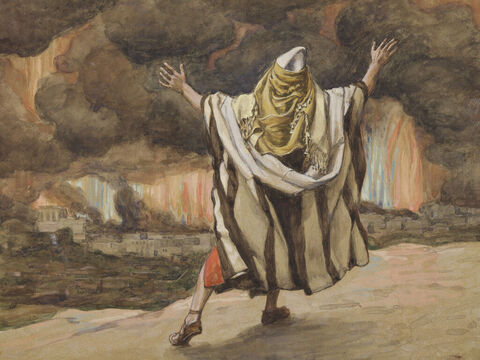
https://www.freebibleimages.org/illustrations/jtjm-abraham2/
When Abraham turned ninety-nine, the Lord changed his name and his wife’s from Abram to Abraham and from Saarai to Sarah—“Father of many nations” and “Mother of many nations.” Significantly, this was a seal of God’s covenant with Abraham.
However, as the years passed, Abraham advanced in age with no visible signs of the divine promise and his wife Sarah’s infertility, rendering the promises of God seemingly distant. Where was the multitude of descendants the Lord had promised him? In the reality of Sarah’s passage of the menopause age and Abraham’s old age, it became illogical to conceptualize the reality of God’s promises. (Gen.18.13).
But Abraham, unperturbed in the solid ground he stood in God, and knowing that he served a God superior to logic remained faithful even when the path was unclear and fraught with challenges. In this manner, Abraham demonstrated the second pillar of faith: The Personal Conviction that faith is not merely the absence of doubt but living in the reality of triumph over doubt, in spite of contradictory circumstances.
Abraham’s transcendental act of faith captivates the mind for its relentless conviction in God despite moments of uncertainties and doubts. His firm and unsullied belief in the possibility of God demonstrates that faith is not a phantom or an imagination of good faith, invariably, opening him up to the possibilities that can be attained through God. His journey, not devoid of struggle, tells of an unshaken conviction in God’s infallibility. Through the lens of Abraham’s faith there was no such thing as doubt needless of its deficit. (Phil 4.13) True faith requires trust and an abandonment of its contrary.
Then Jesus told him, “Because you have seen me, you have believed; blessed are those who have not seen and yet have believed.”
John 20.29
Comparatively, with the Thomas’ faith which needs to see the signs to believe, the Abrahamic faith does not ask for the signs, it believes the signs long before the sight appears. The Abrahamic faith is sight. The Abrahamic faith is not logic. The Abrahamic faith defies logic. The Abrahamic faith is not blind. It has eyes. It sees the evidence of things that cannot be seen by mere eyes, it is the reality of the substance of things merely hoped for.
The birth of Isaac, a testament to the unparalleled, and magnificent display of God’s might, is a resounding triumph and affirmation of Abraham’s faith. Faith, as eloquently articulated by Paul the Apostle can quake mountains and defy the natural.
Also Read: BIBLICAL HERO OF THE WEEK: DANIEL
THE SACRIFICE OF ISAAC

https://www.freebibleimages.org/illustrations/jtjm-abraham2/
Significantly, Abraham’s greatest test of faith came with the instruction to sacrifice his son, Isaac, the very child through whom God’s promises had been fulfilled. But despite the emotional burden of this request, Abraham remained faithfully resolute. He did not hesitate. He rose early the next morning, taking Isaac to Mount Moriah where the sacrifice was to take place. In that climactic moment, as Abraham raised the knife, the Lord intervened, providing a ram as a substitute for Isaac and underscoring the third pillar of faith: Sacrifice.
Despite the seemingly insurmountable odds raised against him, Abraham stood as an unshakeable rock of faith in God. No wonder the Lord pleased by his faithful spirit showered his blessings on Abraham in abundance with a spiritual inheritance that will be the bedrock of legacy to millions of people for years to come. The Scriptures reveal to us the Lord was so pleased with him, that he was called a “Friend of God.” Not many are called this.
And the scripture was fulfilled which saith, Abraham believed God, and it was imputed unto him for righteousness: and he was called the Friend of God.
James 2.23
God’s inestimable blessings to Abraham and his “seed” (everyone who is a partaker with Christ that is a born-again believer) is an eternal covenant to bless him and also make him a blessing to all the nations scattered and as plenteous as the stars across the galaxy.
LEGACY
At the heart of the Abrahamic story is the unadulterated truth and thrust of faith—as not merely a belief but an active engagement with God’s guidance, promise and sovereignity through commitment, sacrifice and obedience.
In the contemporary Christian space, where faith is often misconstrued as a passive state of belief without an active execution, the Abrahamic story sermonizes that faith is anything but an ignis fatuus nor a delusion nor a superficial absence of doubt.
As believers, we are called into the belief of something beyond the superficial, hence we must be intrinsically and extrinsically attuned by that faith to God. God is not seeking mindless, robotic followers, He is asking for us to see Him for He is real and know Him that our worship might be in truth and in spirit. We are called to embody a non-hesitating, tenacious and rock-solid faith.
Finally, Abraham’s story teaches us that faith is not the denial of struggle but the belief in a God who is above those struggles. Even when it seems God is silent, he is busy in the theatre of making miracles, tilting the light into the dark corners of our lives! Let us embody a non-hesitating faith.
A beautiful song declares:
“Lord, your glory is tangible in this place/
You are doing something great/
Awakening supernatural faith!”




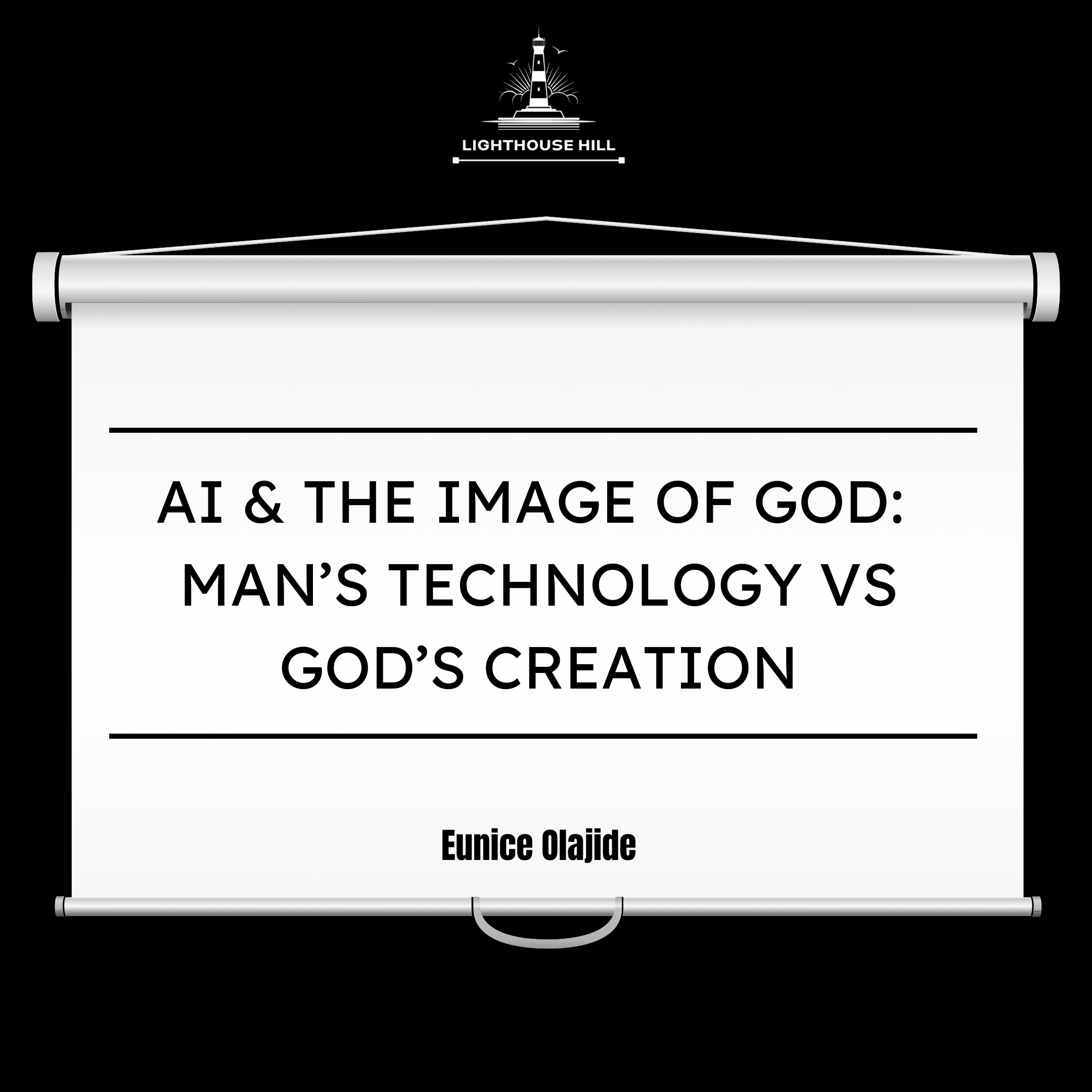

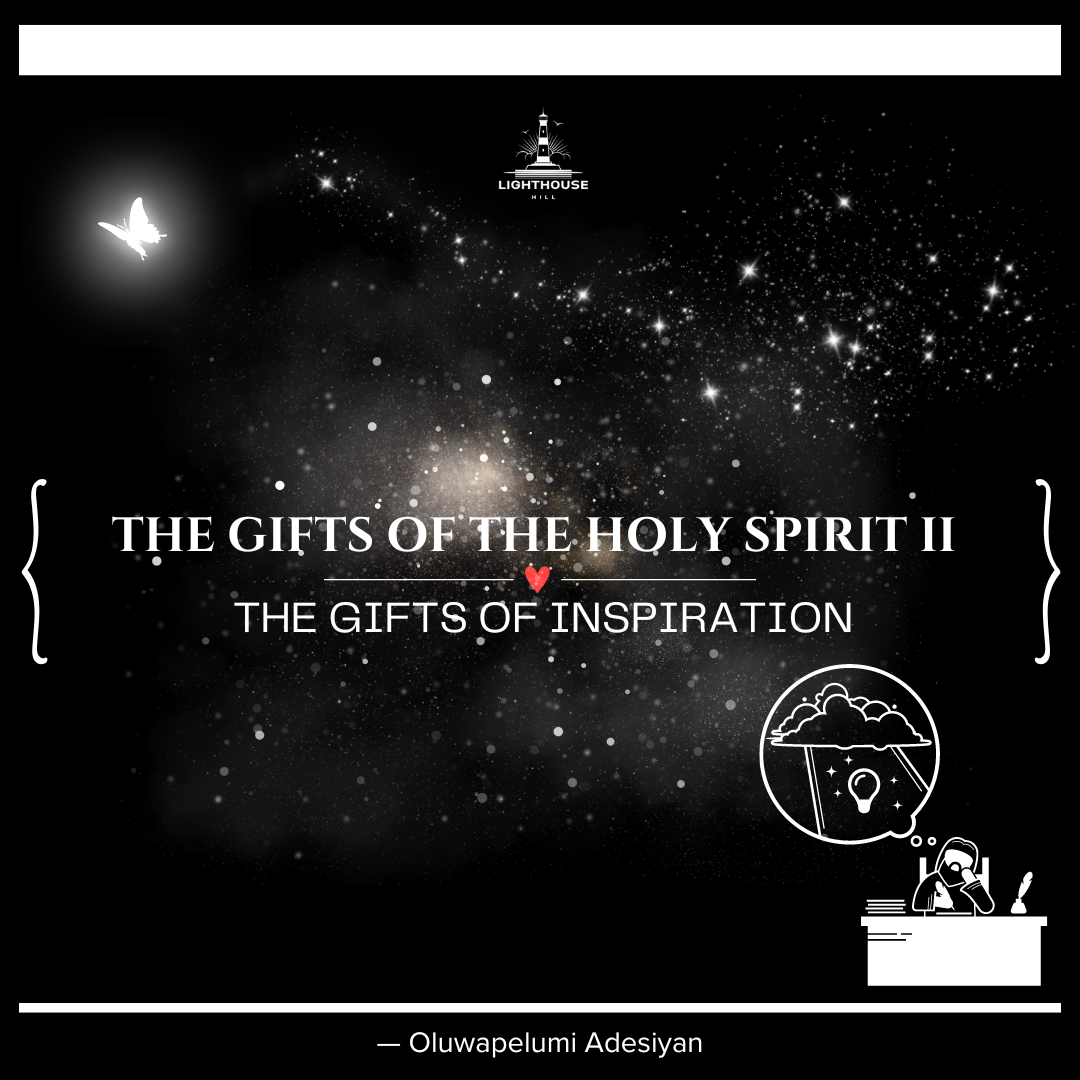


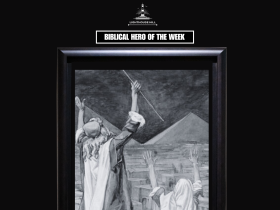


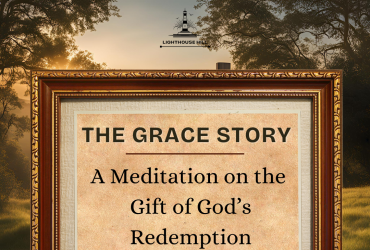



Leave a Reply
View Comments